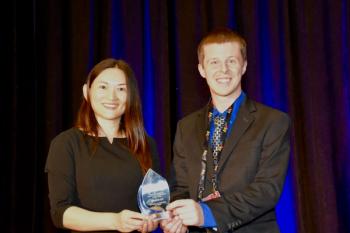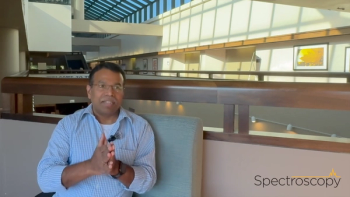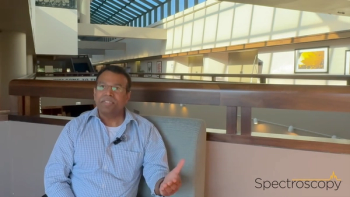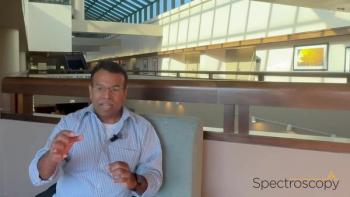
Reflections from SciX 2023: A History of FACSS, Far-IR, and Mid-IR
The opening keynote reviews how FACSS has evolved over a 50-year period, and where it is going in the future.
The 50th SciX Conference kicked off yesterday in Sparks, Nevada, at the Nugget Casino Resort. Most of the conference attendees gathered in Sierra 5 to listen to Peter Griffiths, professor emeritus at the University of Idaho (retired), deliver his keynote address titled, “Fifty Years of FACSS and SciX Conferences: The Remarkable Correspondence with Advances in Vibrational Spectroscopy” (1). It was during his talk that he was presented with the Ellis R. Lippincott Award, which recognized Griffiths for his significant contributions to vibrational spectroscopy as judged by their influence on other scientists (2).
Although Griffiths could not be at the conference this year, he was able to participate in the award ceremony virtually. He was also able to deliver his talk via a pre-recorded speech to a packed crowd in Sierra 5.
One of the humorous moments of the evening came when Griffiths spoke about his time at the Oxford. When he was not in the laboratory conducting his research, Griffiths played rugby and cricket. He recounted that it was “hard to think about his research” while engaging in the sport, especially when other players were tackling you and knocking you to the ground (1).
Despite the technical difficulties encountered at the event, FACSS was able to pivot quickly, inviting Ian Lewis, a longtime colleague of Peter Griffiths, to give his talk, while the team worked on troubleshooting Griffiths’s pre-recorded speech. Lewis gave the community a brief overview of the history of FACSS.
Numerous highlights and interesting tidbits were abound in his speech. Lewis began his talk going over the first FACSS conference back in 1974, which was in Atlantic City. Attendees laughed as Lewis compared the prices for registrants back then to what they were in 2023. Lewis talked about how Griffiths was at the very first conference, sharing letters of recommendation he received from respected colleagues. Those letters of recommendation not only helped Griffiths get an opportunity to work under Lippincott, but the letters also helped reinforce the impact Griffiths has had on vibrational spectroscopy (3).
Lewis also talked about how attendance at FACSS conferences dipped in the 1990s, which led to a renewed focus on branding. In an effort to increase attendance and inspire new organizations to partner with FACSS, a Marketing Chair position was created, designed to oversee all marketing efforts for the FACSS (now SciX) conference. Some of the names that were considered for the rebrand garnered some laughs, as FACSS considered Mindtrade and Analyticon before landing on SciX, short for “The Great Scientific Exchange,” which is what the conference is called today (3).
Once the technical issues were resolved, Griffiths’s speech was then played. He elaborated on some of the points Lewis mentioned in his speech. Apart from building on the history of FACSS, he also talked about how far infrared (Far-IR) and Mid-IR instruments have evolved over the same period of time (2).
Once Griffiths’s talk concluded, the crowd gave him a warm ovation. Although the evening introduced some twists and turns that were unexpected, it seemed only fitting in a way, because the history of FACSS encountered twists of its own throughout its 50-year history.
References
- Griffiths, P. R. Fifty Years of FACSS and SciX Conferences: The Remarkable Correspondence with Advances in Vibrational Spectroscopy. Presented at SciX 2023 in Sparks, Nevada, October 8, 2023.
- Optica, Ellis R. Lippincott Award.
https://www.optica.org/get_involved/awards_and_honors/awards/award_descriptions/ellislippincott/ (Accessed October 3, 2023). - Lewis, I. The History of FACSS. Presented at SciX 2023 in Sparks, Nevada, October 8, 2023.
Newsletter
Get essential updates on the latest spectroscopy technologies, regulatory standards, and best practices—subscribe today to Spectroscopy.




